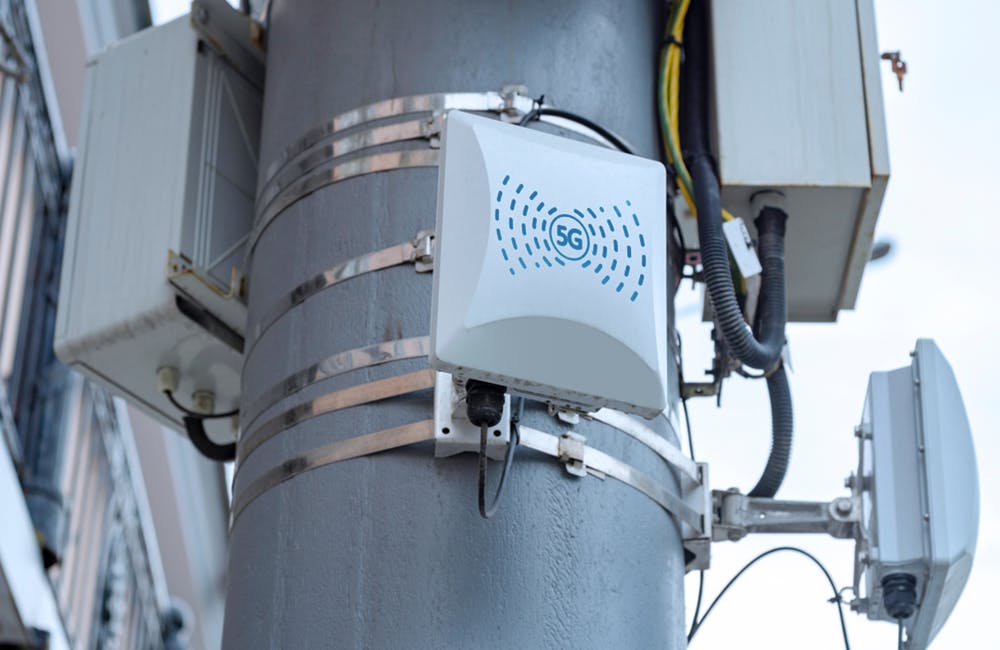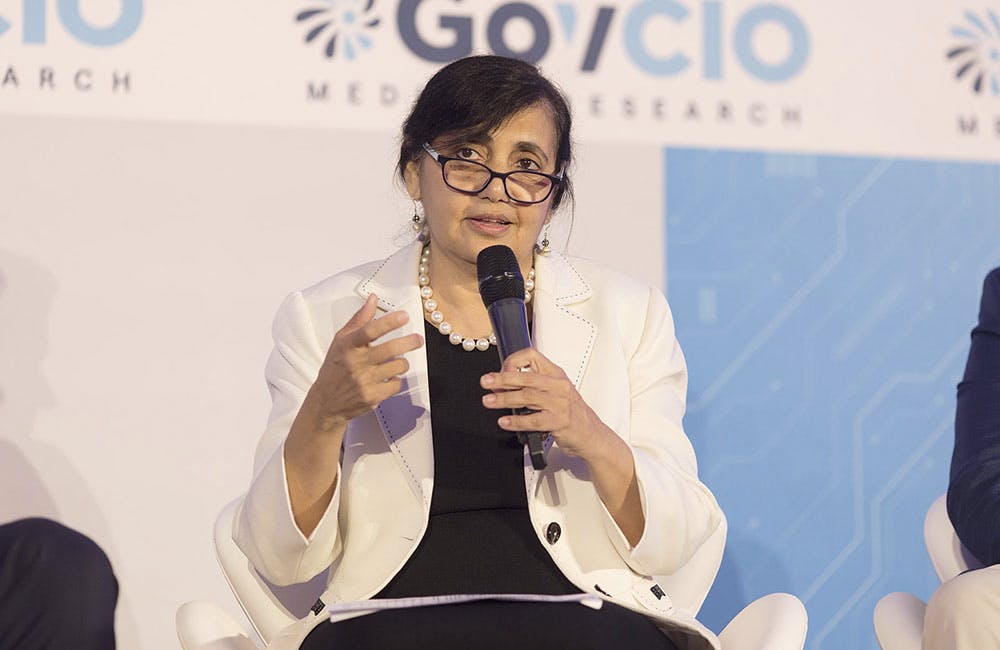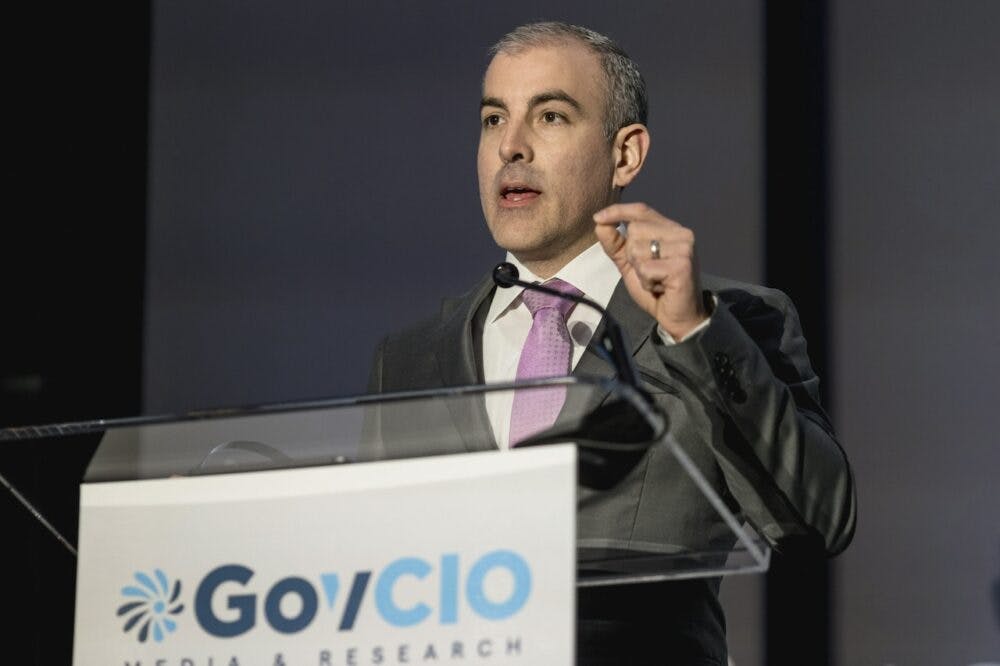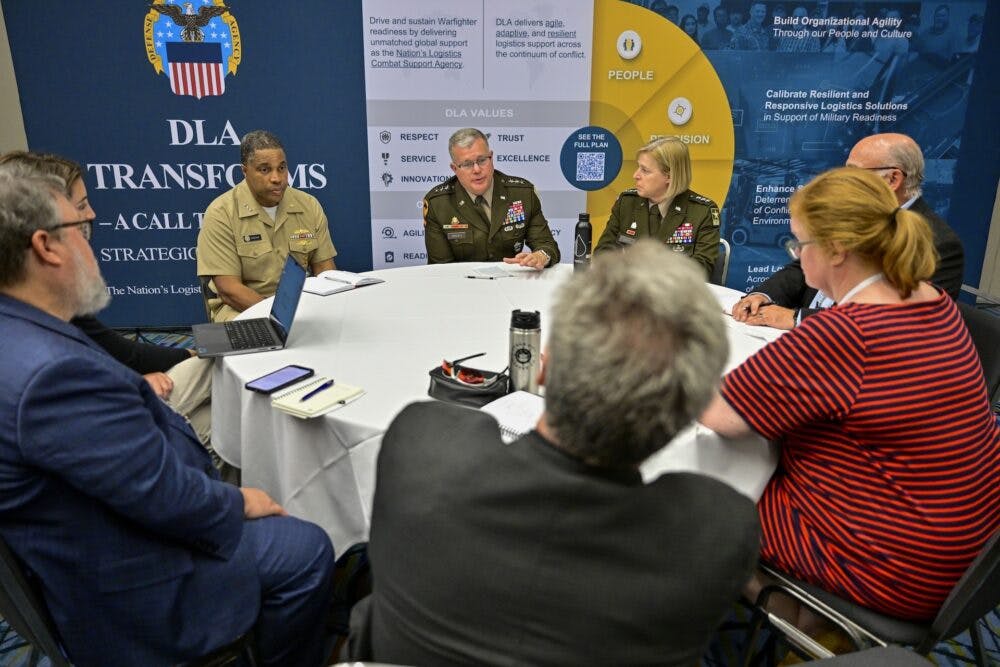5G Enables Faster Data Transfer for VA, State Department
5G can bolster data-sharing and speed of delivery, but requires proper cloud and data infrastructure.

The Department of Veterans Affairs and State Department are accelerating 5G deployment to improve data-sharing and speed of service delivery, according to 5G leaders at the ATARC and FMG’s Mobile Breakfast Summit Tuesday.
“Going from [4G] to 5G is like going from a one lane road dirt road to a superhighway, where you can move more stuff faster,” VA’s director for National Center for Collaborative Healthcare Innovation Thomas Osborne said. “You don’t always need to go to that superhighway, but if you want to… move lots of things around efficiently, then that’s really critical.”
VA wants 5G to support health care services such as telehealth, large medical file transfer, patient monitoring and continual treatment information and support for veterans.
5G improved data collection and data tracking at VA, Osborne said. As the agency continues to expand its use of 5G, Osborne hopes to leverage larger infrastructures to share patient data faster, especially as it pertains to electronic health records, imaging and genomics.
“We hope to [convert] that data into information and knowledge and wisdom. In other words, translating that into use cases that benefit health and wellness,” Osborne said. “[5G] opens up the aperture of possibilities… It’s super important for us to be efficient in delivering health care, but it’s also important if we’re talking about safety and value, because when we can do that well, then we can reduce the amount of time it takes for us to do certain procedures and to have everyone educated better.”
Brian Merrick, director of the State Department’s cloud programs, explained how he’s improving the agency’s multi-cloud environment and investing in data analytics as agencies look to leverage 5G to improve information-sharing.
Because there’s a confluence of shared equities internationally and between different agencies, cloud-based tools and 5G have enabled the State Department to capture data faster, improve operational support and share information across different units.
“We’re really looking at 5G to sort of bring all those capabilities together and push that capability out from headquarters and into the edge,” Merrick said. “We really need to be able to get that capability for business applications and complex data analytics democratized in terms of access to those capabilities, so that users in the field can leverage… to support decisions and find a way to share information across multiple stakeholders.”
Interoperability between health technologies and systems can help VA better understand patient condition and treatment across different points of care, but the bureaucracy around data-sharing is an obstacle to meeting this goal. Osborne said HIPAA poses some policy hurdles, but VA is exploring ways to accelerate data-sharing while protecting patient information.
“[5G] to me is really about performance—to bring the right tools and technologies to the right place, so we can give the right diagnosis, at the right time— if you do all that really well, then people have healthier, happier lives,” Osborne said.
The State Department wants 5G to ultimately help the agency reach scale, speed and security. As the speed of solutions increases, so does the speed of attacks and vulnerabilities, Merrick said. To combat these threats, the State Department is bolstering cloud and data security.
“Rather than looking at 5G as a distinct pilot, if you will, we see it as an underlayment to help us get at scale and speed,” Merrick said. “In order to operate in these environments, we need to start moving into more low-code platforms, a lot more SaaS, a lot more cloud security and posture management. All of those things have to work together.”
This is a carousel with manually rotating slides. Use Next and Previous buttons to navigate or jump to a slide with the slide dots
-

The Next AI Wave Requires Stronger Cyber Defenses, Data Management
IT officials warn of new vulnerabilities posed by AI as agencies continue to leverage the tech to boost operational efficiency.
5m read -

Federal CIOs Push for ROI-Focused Modernization to Advance Mission Goals
CIOs focus on return on investment, data governance and application modernization to drive mission outcomes as agencies adopt new tech tools.
4m read -

Agencies Push Data-Driven Acquisition Reforms to Boost Efficiency
New initiatives aim to increase visibility of agency spending, improve data quality and create avenues to deploy solutions across government.
5m read -

Data Transparency Essential to Government Reform, Rep. Sessions Says
Co-Chair of the Congressional DOGE Caucus Rep. Pete Sessions calls for data sharing and partnerships to reduce waste and improve efficiency.
5m read -

DOD Can No Longer Assume Superiority in Digital Warfare, Officials Warn
The DOD must make concerted efforts to address cyber vulnerabilities to maintain the tactical edge, military leaders said at HammerCon 2025.
4m read -

Marine Corps Operation StormBreaker Slashes Software Delivery Timelines by 17x
New program aims to deliver critical digital capabilities to warfighters at the "speed of relevance" by overhauling traditional processes.
4m read -

DHA CDAO Spearheads Master Data Catalog to Boost Transparency
Jesus Caban plans to boost DHA's data maturity through a new master data catalog, governance frameworks and inventory of tech tools.
5m read -

IRS Makes Direct File Code Public as Lawmakers Debate Program’s Fate
The agency sees the Direct File source code as beneficial to government digital services despite what happens with it in proposed budgets.
5m read -

A Look at Federal Zero Trust Transformation
Recent developments from CISA and DOD show how government is advancing zero trust quickly.
20m read -

Modernization Strategies to Enable Energy Innovation
Lawrence Berkeley National Lab and Maximus experts explore the modernization strategies driving digital transformation and operational resilience within the energy sector.
33m watch -

New Army Acquisition Plan Cites Autonomy, Predictive Analytics
Officials outline how the Army Transformation Initiative signals a broader shift toward efficiency with tech and acquisition reform.
4m read -

DOE National Labs Launch New AI Tools for Operational Efficiency
The Energy Department's National Laboratories are using AI to increase operational efficiency and drive research efforts forward.
3m read
















